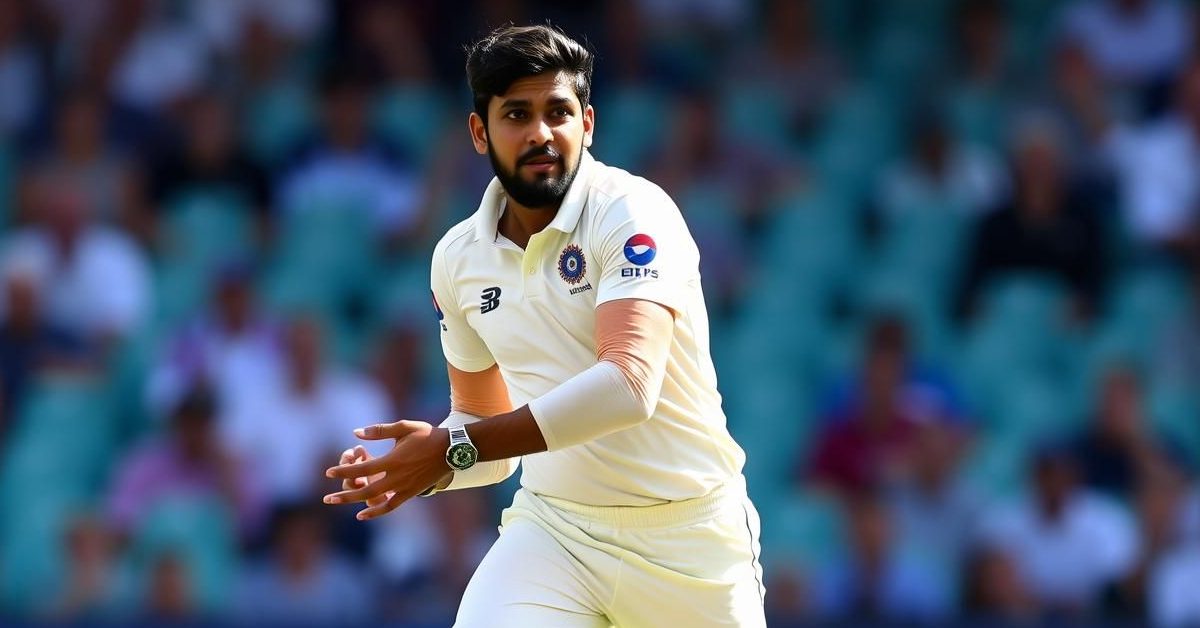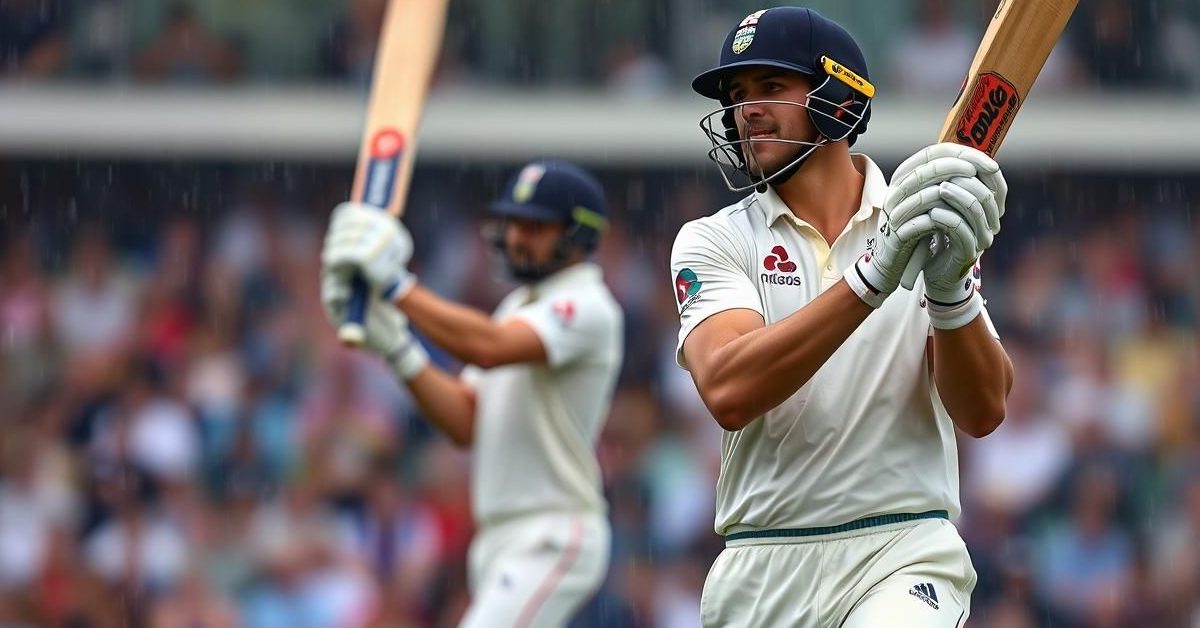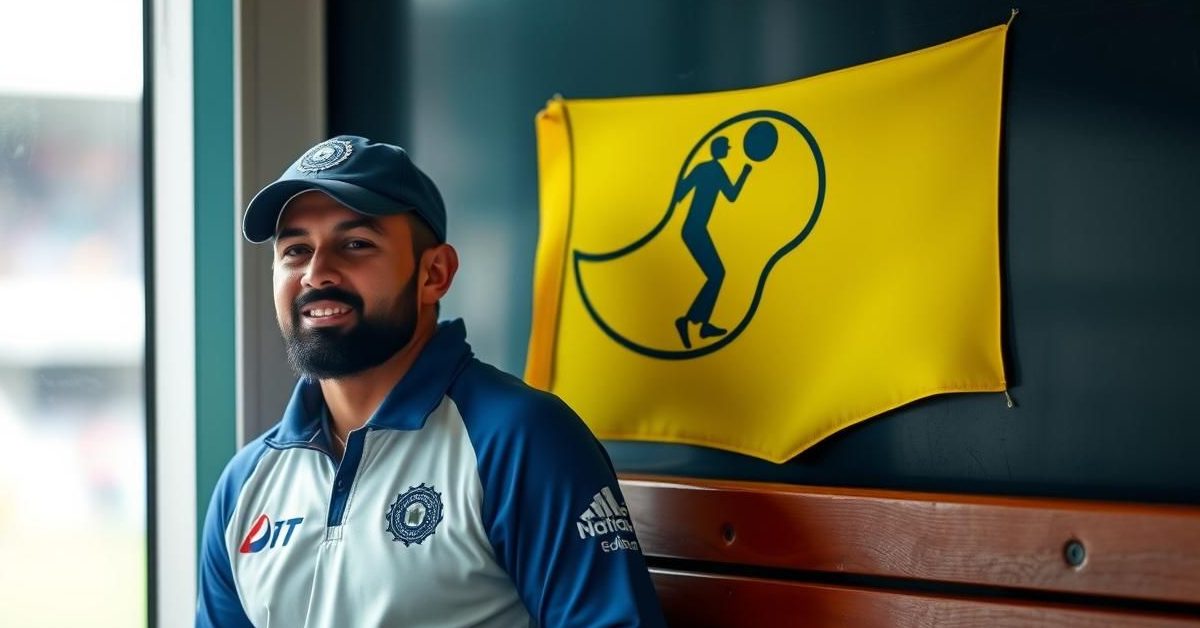Indian all-rounder Shardul Thakur has admitted that being sparingly used with the ball in the ongoing Test match against England at Old Trafford is affecting his bowling rhythm, clarifying that the decision on his bowling quota rests solely with captain Shubman Gill.
Thakur On His Bowling Role
Making a comeback to the side for the fourth Test, Thakur played a vital hand with the bat, scoring a crucial 41 runs in India’s first innings. However, his contribution with the ball has been minimal.
On Day 2, he bowled just five of the 46 overs, conceding 35 runs at an economy rate of seven runs per over. England finished the day at 225/2, trailing India by 133 runs.
When questioned about his limited bowling spell, Thakur was clear about the chain of command. “Giving bowling is the captain’s call. Not in my hands. The captain decides when to give them,” he stated.
The Mumbai all-rounder indicated he was ready to bowl more. “But that is the captain’s call. It is difficult to find rhythm but I try and use my experience,” he added, highlighting the challenge of maintaining form with infrequent spells.
Understanding the Conditions
Thakur also offered his perspective on the match conditions, noting England’s strong start. He observed that the initial 10-12 overs saw a rapid flow of runs from the opposition.
“After that, we were trying to pull it back,” Thakur explained. He pointed out the impact of the weather, stating, “When the sun is out here, the runs are being scored at a good rate. And when the conditions are overcast, the ball does a lot. And then it just becomes difficult to score.”
Expert Opinion from R Ashwin
The decision to use Shardul Thakur so sparingly has raised eyebrows, even among former cricketers. Veteran India off-spinner R Ashwin, speaking on his YouTube channel, expressed his bewilderment.
Ashwin questioned the strategy, suggesting that if Thakur was only going to bowl a handful of overs and was primarily included for his batting, then India could have considered including left-arm spinner Kuldeep Yadav in the playing XI instead.
“I love Shardul Thakur, I like him a lot, but if this is the usage point, why can’t you consider Kuldeep Yadav? It is just blowing my head away,” Ashwin remarked. He further argued that with Ravindra Jadeja and Washington Sundar already providing batting depth, India should prioritize an attacking bowling option.
“When your bowlers can bat so well, why are you not bringing an attacking bowler? Today, Jassi was bowling, and after that, it looked like India had no other options to take a wicket,” Ashwin concluded, highlighting a perceived lack of wicket-taking bowlers beyond Jasprit Bumrah.
- Shardul Thakur believes his limited bowling spells impact his rhythm.
- He stated that bowling decisions are entirely the captain’s prerogative.
- Former cricketer R Ashwin questioned the strategy, suggesting Kuldeep Yadav could be a better option if Thakur’s bowling role is restricted.
The team’s strategy and Thakur’s role will continue to be a talking point as the Test match progresses.
Indian fast-bowling all-rounder Shardul Thakur has acknowledged that being used sparingly with the ball in the ongoing fourth Test against England is impacting his rhythm, clarifying that how much he bowls is solely the captain’s decision.
Thakur on His Bowling Challenge
Thakur, who made his return to the side for the Old Trafford Test, made a valuable contribution with the bat, scoring a crucial 41 runs in India’s first innings. However, his bowling spells have been notably limited.
On Day 2, he bowled only five of the 46 overs, conceding 35 runs at an expensive rate of seven runs per over. England ended the day at 225/2, trailing India by 133 runs.
When asked about his restricted bowling, Thakur was direct. “Giving bowling is the captain’s call. Not in my hands. The captain decides when to give them,” he stated, emphasizing the skipper’s authority.
The Mumbai all-rounder indicated he was ready for more overs. “But that is the captain’s call. It is difficult to find rhythm but I try and use my experience,” he added, highlighting the challenge of maintaining consistency with infrequent bowling opportunities.
Reading the Match Conditions
Thakur also shared his observations on the match situation and the Old Trafford pitch. He noted that England scored “a lot of runs in the first 10-12 overs” and that India was then “trying to pull it back.”
He explained how conditions influence play. “We know a lot of times when the sun is out here, the runs are being scored at a good rate. And when the conditions are overcast, the ball does a lot. And then it just becomes difficult to score,” he elaborated.
R Ashwin Questions Team Strategy
The decision to utilize Thakur so sparingly has also drawn comments from outside the team. Former India off-spinner R Ashwin, speaking on his YouTube channel, expressed his surprise.
Ashwin questioned the team selection, suggesting that if Shardul Thakur was only intended to bowl a few overs and was primarily in the team for his batting, then left-arm spinner Kuldeep Yadav could have been a more attacking option in the playing XI.
“I love Shardul Thakur, I like him a lot, but if this is the usage point, why can’t you consider Kuldeep Yadav? It is just blowing my head away,” Ashwin remarked.
He further argued that with Ravindra Jadeja and Washington Sundar already providing significant batting contributions down the order, the team could afford to include a specialist attacking bowler. “When your bowlers can bat so well, why are you not bringing an attacking bowler? Today, Jassi was bowling, and after that, it looked like India had no other options to take a wicket,” Ashwin concluded, pointing out a perceived lack of wicket-taking options for India.
- Shardul Thakur admits limited bowling impacts his on-field rhythm.
- He confirmed that the captain, Shubman Gill, decides his bowling allocation.
- R Ashwin criticized the team’s strategy, suggesting Kuldeep Yadav could be a better option if Thakur’s bowling role is restricted.
The team’s bowling strategy and player roles will remain key discussion points as the crucial Test match unfolds.













